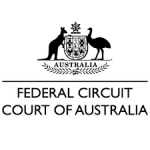The Federal Circuit Court of Australia was established by the Federal Circuit Court of Australia Act 1999 formerly the Federal Magistrates Act) and its jurisdiction at inception was conferred by the Federal Magistrates (Consequential Amendments) Act 1999. These Acts received royal assent on 23 December 1999.
The Court was established to provide a simple and accessible alternative to litigation in the Federal Court of Australia (Federal Court) and the Family Court of Australia (Family Court) and to relieve the workload of those courts. The FCC Act directs the Court to operate informally and to use streamlined procedures. This complements the Parliament’s initiatives to encourage people to engage in a range of dispute resolution processes.
The Court is committed to providing access to justice to the people of Australia. The Court’s expansive regional circuit network is demonstrative of this commitment. Judges regularly travel to various regional locations to hear matters, alleviating the burden on regional litigants (and their legal representatives) to travel to major cities to have their matters dealt with. The Federal Circuit Court is the only federal court that regularly conducts regional circuits. The Court’s commitment to the provision of access to justice for all Australians is further illustrated by its ability to conduct special sittings in most regions of Australia on demand.
The jurisdictions of the Federal Circuit Court has grown since its inception and broadly includes family law and child support, administrative law, admiralty law, bankruptcy, copyright, human rights, industrial law, migration, privacy and trade practices. Approximately 90% of the Court’s workload is in the area of family law.
The Court provides a venue for the determination of disputes by a Judge after hearing legal arguments and considering the evidence. The process of judicial determination may be supported by the other interventions designed to assist the parties to agree without the need for a judicial decision. These interventions include conciliation and mediation services. In disputes concerning children, the participants will be encouraged to focus on the best interests of the children.
For more information on the Federal Circuit Court, including (but not limited to):
Reaching an agreement without going to court
Family Law in Australia
Separation and Divorce
Parenting
Missing Children
Property & Finance
Court Orders
Getting Help
Family Violence
Child Dispute Services
About going to court and court processes
Appeals Process
Please access the family matters section of the Federal Circuit of Australia Website at www.federalcircuitcourt.gov.au, where you are also able to participate in a live chat regarding any questions you may have, or please call the Family Law Courts of Australia on 1300 352 000.

